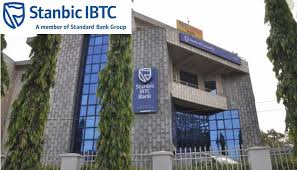
By Abibat Aliu
Citing concerns about the rising burden of taxation on businesses, the Centre for the Promotion of Private Enterprise (CPPE) has warned that the current tax regime in Nigeria will further stifle investment as corporate taxes may hit 36 per cent
Chief Executive officer of the CPPE, Dr. Muda Yusuf, while presenting the organisation’s economic and business environment review for 2022 and setting an agenda for policymakers for 2023, cited the need for an accommodating tax regime.
According to him, an economy that desires job creation, economic inclusion, investment growth and poverty reduction, should have an accommodating tax regime for investors.
Specifically, he stated that “Corporate tax in Nigeria is 30 per cent. But effective corporate tax is much more than that. There is a tertiary education tax of 2.5 per cent of the profit; a NITDA Levy of one per cent of the profit; a NASENI Levy of 0.25 per cent of the profit; Police Trust Fund Levy of 0.005 per cent of the profit.
“This brings effective corporate tax to about 34 per cent. This rate is one of the highest in the world. The average corporate tax rate for Africa is 27.6 per cent; the Asian average is 19.52per cent; the European Union is 19.74 per cent and the global average is 23.37 per cent.
“Meanwhile, new taxes are still being proposed by the National Assembly. These include a Tertiary Health Tax of one per cent of the profit; and an NYSC levy of one per cent of the profit. There are numerous other taxes imposed on businesses by the states and local governments”.
Yusuf noted that the multitude of taxes continues to cripple investment in the Nigerian economy adding that there is a need for an urgent review.
According to him, the current tax regime conflicts with the National Tax Policy which prescribes that there should be less emphasis on direct taxation to incentivise investment.
“Meanwhile, investors are grappling with numerous macroeconomic, structural and regulatory headwinds. They incur huge expenditures on stuff that the government should normally provide – electricity, security, water, waste management and human capital. These are implicit taxes, as they were. There are also numerous state and local government taxes which businesses have to pay,’’ he said.
To unlock growth and investment in 2023, Yusuf said the government must undertake some urgent reforms.
He stated that the enactment of the Petroleum Industry Act [PIA] was a major step toward the reform of the oil-gas sector.
“It promises to transform the sector through the creation of a legal and regulatory framework that would inspire much higher levels of investors’ confidence. But we need to see a greater commitment to the implementation of the PIA. The deregulation of the petroleum downstream sector is a major economic reform imperative. This is inevitable if we must unlock investment in the sector and put an end to the perennial fuel scarcity and the monopolistic structure of the sector,” he said.
On power sector reforms, Yusuf said there is a need to also consolidate the power sector reform, adding that an enabling environment must be created to sustain current private sector investment in the sector and attract new private capital to the electricity sector.
He said: “Urgent reforms are vital concerning electricity tariff, metering and deepening of the energy mix. We need robust incentives [fiscal and monetary] to boost private investment in renewable energy.
“We should reform the budget and appropriation processes to prioritise infrastructure financing and human capital development. This would boost the productivity and competitiveness of the economy. Adoption of these reform initiatives would guarantee progression towards fiscal consolidation, reduction in fiscal deficit, diminishing need for borrowing and abating debt service burden.”






